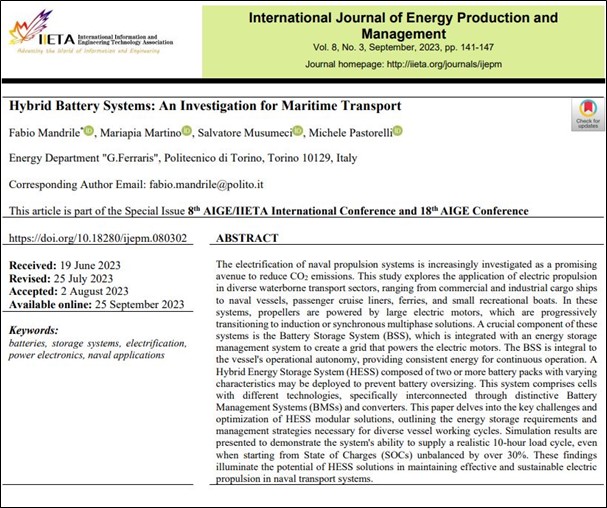Published: September 2023
Authors: Fabio Mandrile – Mariapia Martino – Salvatore Musumeci – Michele Pastorelli (POLITO)
Abstract: The electrification of naval propulsion systems is increasingly investigated as a promising avenue to reduce CO2 emissions. This study explores the application of electric propulsion in diverse waterborne transport sectors, ranging from commercial and industrial cargo ships to naval vessels, passenger cruise liners, ferries, and small recreational boats. In these systems, propellers are powered by large electric motors, which are progressively transitioning to induction or synchronous multiphase solutions. A crucial component of these systems is the Battery Storage System (BSS), which is integrated with an energy storage management system to create a grid that powers the electric motors. The BSS is integral to the vessel’s operational autonomy, providing consistent energy for continuous operation. A Hybrid Energy Storage System (HESS) composed of two or more battery packs with varying characteristics may be deployed to prevent battery oversizing. This system comprises cells with different technologies, specifically interconnected through distinctive Battery Management Systems (BMSs) and converters. This paper delves into the key challenges and optimization of HESS modular solutions, outlining the energy storage requirements and management strategies necessary for diverse vessel working cycles. Simulation results are presented to demonstrate the system’s ability to supply a realistic 10-hour load cycle, even when starting from State of Charges (SOCs) unbalanced by over 30%. These findings illuminate the potential of HESS solutions in maintaining effective and sustainable electric propulsion in naval transport systems.
